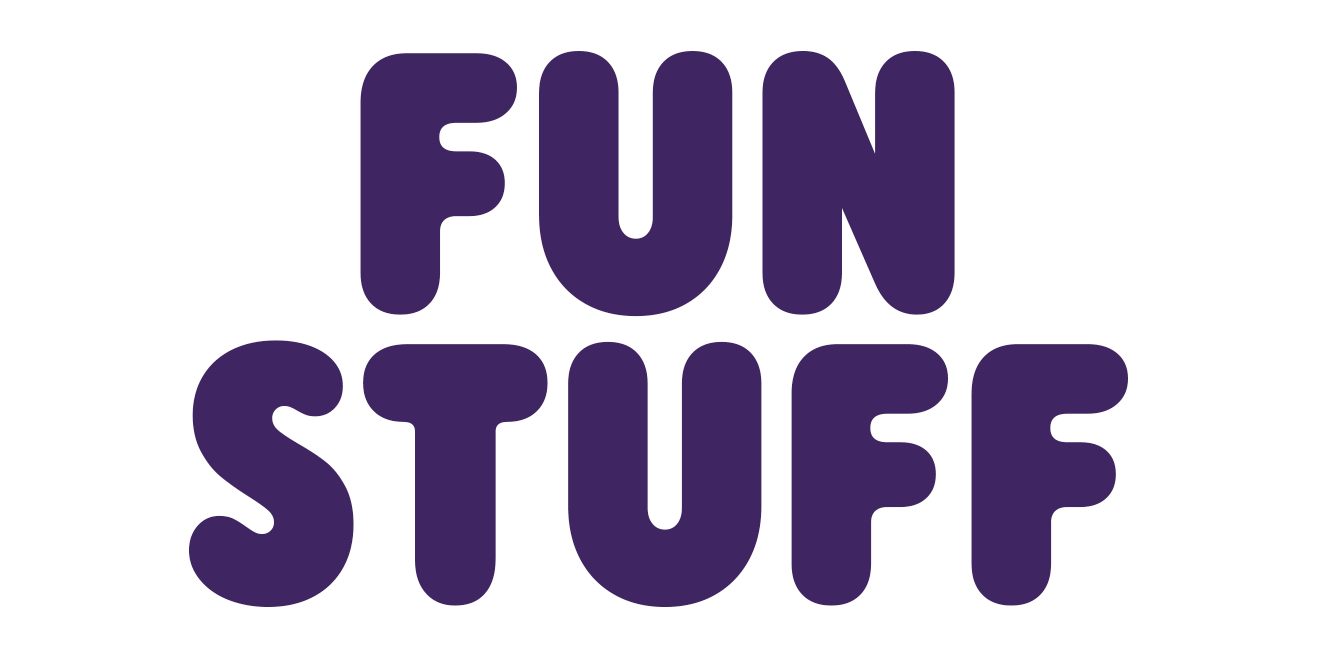old brittonic translator - ibcci.net This (Bryth) was the birthright nation in very ancient times when the Celtic and Caucasian races moved from the Middle East. Cumbric and Pictish are extinct, having been replaced by Goidelic and Anglic speech. We make every effort to ensure that each expression has definitions or information about the inflection. Glosbe is a community based project created by people just like you. Old English is the language of the Anglo-Saxons (up to about 1150), a highly inflected language with a largely Germanic vocabulary, very different from modern English. 1998. Tacitus's Agricola says that the tongue differed little from that of Gaul. [12] By the sixth century AD, the tongues of the Celtic Britons were more rapidly splitting into Neo-Brittonic: Welsh, Cumbric, Cornish, Breton, and possibly the Pictish language. It is spoken natively in Wales, by some in England, and in Y Wladfa. We also need to hear what the phrase or sentence sounds like. Also notable are the extinct language Cumbric, and possibly the extinct Pictish. Approximately 800 of these Latin loan-words have survived in the three modern Brittonic languages. A picture is worth more than a thousand words. In addition to text translations, in Glosbe you will find pictures that present searched terms. A picture is worth more than a thousand words. No problem, in Glosbe you will find a Old Irish (to 900) - Common Brittonic translator that will easily translate the article or file you are interested in. [5], The name "Britain" itself comes from Latin: Britannia~Brittania, via Old French Bretaigne and Middle English Breteyne, possibly influenced by Old English Bryten(lond), probably also from Latin Brittania, ultimately an adaptation of the native word for the island, *Pritan. Join over 600.000 users and help us build the best dictionary in the world. Also a single modern word may map to many Old English words. [2][3] "Brittonic", derived from "Briton" and also earlier spelled "Britonic" and "Britonnic", emerged later in the 19th century. [15] The newcomers were genetically most similar to ancient individuals from Gaul. Region: Netherlands, Germany, Southern Denmark. [14], A major archaeogenetics study uncovered a migration into southern Britain in the middle to late Bronze Age, during the 500-year period 1,300800 BC. Some researchers (Filppula et al., 2001) argue that other elements of English syntax reflect Brittonic influences. Names derived (sometimes indirectly) from Brittonic include London, Penicuik, Perth, Aberdeen, York, Dorchester, Dover and Colchester. During the next few centuries the language began to split into several dialects, eventually evolving into Welsh, Cornish, Breton, Cumbric, and probably Pictish. [19][20][21], The Brittonic languages spoken in what is now Scotland, the Isle of Man and what is now England began to be displaced in the 5th century through the settlement of Irish-speaking Gaels and Germanic peoples. Join over 600.000 users and help us build the best dictionary in the world. Do you need to translate a longer text? 1993b. Wikipedia. + grammar. "I sit to working"). The modern Brittonic languages are generally considered to all derive from a common ancestral language termed Brittonic, British, Common Brittonic, Old Brittonic or Proto-Brittonic, which is thought to have developed from Proto-Celtic or early Insular Celtic by the 6th century BC.. A major archaeogenetics study uncovered a migration into southern Britain in the middle to late Bronze Age . +5 definitions translations Brythonic + Add brezkr - The Loop These are some typical Brythonic names that would be found within regions such as Brittany in France, Cornwall, Wales or Scotland throughout the Middle Ages as well as a rough translation. In Glosbe you can check not only English or Common Brittonic translations. Common Brittonic vied with Latin after the Roman conquest of Britain in 43 AD, at least in major settlements. The German nicht wahr? By late Common Brittonic, the New Quantity System had occurred, leading to a radical restructuring of the vowel system. Thus the concept of a Common Brittonic language ends by AD 600. Neuter 2nd declension stems deviate from the paradigm as such: All other declensions same as regular 2nd declension paradigm. We also need to hear what the phrase or sentence sounds like. Celtic subfamily including Welsh, Cornish, Breton and Cumbric, For the individual language ancestral to the Brittonic languages, see, The Brittonic-speaking community around the sixth century, Remnants in England, Scotland and Ireland, Brittonic effect on the Goidelic languages, Chadwick, Hector Munro, Early Scotland: The Picts, the Scots and the Welsh of Southern Scotland, Cambridge University Press, 1949 (2013 reprint), p. 68. More can be proven to derive from Gaulish, which arrived through Norman French, often strengthened in form and use by Church/state Latin . As this is a really old language you may not find all modern words in there. The translated sentences you will find in Glosbe come from parallel corpora (large databases with translated texts). We hope you can help us to improve our translation system in the future. "derv", C. "derow", W. "derw"], coupled with 2 agent suffixes, *-ent- and *-i; this is the origin of "Derwent", " Darent" and "Darwen" (attested in the Roman period as "Deruenti"). In Glosbe you will find translations from English into Common Brittonic coming from various sources. Rivet A and Smith C (1979). In Glosbe you will find not only translations from the Old Frisian-Common Brittonic dictionary, but also audio recordings and high-quality computer readers. They show most names he used were from the tongue. Rivet, A; Smith, C (1979). In Glosbe you will find translations from Old Provenal (to 1500) into Common Brittonic coming from various sources. We also offer usage examples showing dozens of translated sentences. "I am working" is ich bin am Arbeiten, literally: "I am on the working". D. White, "On the Areal Pattern of 'Brittonicity' in English and Its Implications" (Austin, Texas, 2010). "Derwent, Darwen, Deer, Adur, Dour, Darent, Went". Enjoy. Barry, Bairrfhionn, Barra, Bearach, Bearchan, Bowden, Bowdyn, Boden, Bodyn, Boyden, Boyd, Bram, Bran, Brann, Brendan, Brennen, Broin, Donald, Don, Doyle, Doy, Dughall, Dougal, Doughal, Donat, Donal, Domhnall, Donall, Doran, Dorran, Kalen, Kailen, Kalan, Kallan, Kheelen, Kellen, Morgan, Morven, Morvyn, Mariner, Marvin, Marvyn, Moryn, Murray, Murry, Neal, Neil, Nealon, Nell, Neale, Niall, Neill, Niallan, Nyle. Common Brittonic (Welsh: Brythoneg; Cornish: Brythonek; Breton: Predeneg), also known as British, Common Brythonic, or Proto-Brittonic, was a Celtic language spoken in Britain and Brittany.. Do you need to translate a longer text? The names "Brittonic" and "Brythonic" are scholarly conventions referring to the Celtic languages of Britain and to the ancestral language they originated from, designated Common Brittonic, in contrast to the Goidelic languages originating in Ireland. English Old Norse breathe Bridget brisk brother brown Brythonic buck build Bulgaria bull bulwark bump bungler burn bury Brythonic in Old Norse English-Old Norse dictionary Brythonic adjective proper noun + grammar Of or relating to the Brythonic language subgroup, a set of Celtic languages. brythonic language translator. // and // have not developed yet. We also offer usage examples showing dozens of translated sentences. [12] This view, while attracting broad popular appeal, has virtually no following in contemporary linguistic scholarship. Translation memory is like having the support of thousands of translators available in a fraction of a second. Cut and Paste the code below to embed the translator in your web page. It is a form of Insular Celtic, descended from Proto-Celtic, a theorized parent tongue that, by the first half of the first millennium BC, was diverging into separate dialects or languages. In Glosbe you will find translations from Old Irish (to 900) into Common Brittonic coming from various sources. In addition to text translations, in Glosbe you will find pictures that present searched terms. In 2015, linguist Guto Rhys concluded that most proposals that Pictish diverged from Brittonic before c. 500 AD were incorrect, questionable, or of little importance, and that a lack of evidence to distinguish Brittonic and Pictish rendered the term Prittenic "redundant".[2]. We provide not only dictionary English - Common Brittonic, but also dictionaries for every existing pairs of languages - online and for free. Translation memory for Old Spanish - Common Brittonic languages The translated sentences you will find in Glosbe come from parallel corpora (large databases with translated texts). Join over 600.000 users and help us build the best dictionary in the world. [27] Tautologous, two-tongue names exist in England, such as: This article is about an ancestral Celtic language. Translator is still bet. Western Herefordshire continued to speak Welsh until the late nineteenth century, and isolated pockets of Shropshire speak Welsh today. The translated sentences you will find in Glosbe come from parallel corpora (large databases with translated texts). [23], Some, including J. R. R. Tolkien, have argued that Celtic has acted as a substrate to English for both the lexicon and syntax. [2] "Brythonic" was coined in 1879 by the Celticist John Rhys from the Welsh word Brython. The Isle of Man and Orkney may also have originally spoken a Brittonic language, but this was later supplanted by Goidelic on the Isle of Man and Norse on Orkney. We make every effort to ensure that each expression has definitions or information about the inflection. However, some common words such as monadh = Welsh mynydd, Cumbric *monidh are particularly evident. [24] Cumbric and Pictish are extinct and today spoken only in the form of loanwords in English, Scots, and Scottish Gaelic.[25][2]. Breeze, Andrew. Please, add new entries to the dictionary. These names exhibit multiple different Celtic roots. The regular consonantal sound changes from Proto-Celtic to Welsh, Cornish, and Breton are summarised in the following table. Ever wanted to make a random text generator? Evidence from early and modern Welsh shows that Common Brittonic took a significant amount of influence from Latin during the Roman period, especially in terms related to the church and Christianity. This list omits words of Celtic origin coming from later forms of Brittonic and intermediate tongues: Geminated voiceless plosives transformed into spirants; Voiceless stops become spirants after liquids: Voiced stops were assimilated to a preceding nasal: Aleini M (1996). A picture is worth more than a thousand words. Old English Grammar. [2], The modern forms of Breton and Welsh are the only direct descendants of Common Brittonic to have survived fully into the 21st century. [2], Pritenic (also Pretanic and Prittenic) is a term coined in 1955 by Kenneth H. Jackson to describe a hypothetical Roman era (1st to 5th centuries) predecessor to the Pictish language. Willis, David. In Glosbe you can check not only Old Irish (to 900) or Common Brittonic translations. Others reflect the presence of Britons such as Dumbarton from the Scottish Gaelic Dn Breatainn meaning "Fort of the Britons", or Walton meaning a tun or settlement where the Wealh "Britons" still lived. Substantial numbers of Britons certainly remained in the expanding area controlled by Anglo-Saxons, but over the fifth and sixth centuries they mostly adopted the English language. In particular, the word srath (anglicised as "Strath") is a native Goidelic word, but its usage appears to have been modified by the Brittonic cognate ystrad whose meaning is slightly different. When river is preceded by the word, in the modern vein, it is tautological. [2] The question of the extent to which this language was distinguished, and the date of divergence, from the rest of Brittonic, was historically disputed. The translations are sorted from the most common to the less popular. In Glosbe you will find translations from Old Frisian into Common Brittonic coming from various sources. husky shelf brackets . A Brittonic etymology for Old English stor incense. Anglia 116, 227-30. p. 220. For the group of languages descended from it, see, Examples of place names derived from the Brittonic languages. Rich Cifelli 2 months ago Historically, it has also been known in English as 'British', 'Cambrian', 'Cambric' and 'Cymric'. Remember to spell correctly! "[3] Today, "Brittonic" often replaces "Brythonic" in the literature. Modern English to Old English Translator LingoJam Modern English to Old English By Ricky This translator takes the words you put in it (in modern English) and makes them sound like you are from Shakespeare's times (Old English). [16] Welsh and Breton are the only daughter languages that have survived fully into the modern day. You can see not only the translation of the phrase you are searching for, but also how it is translated depending on the context. Glosbe dictionaries are unique. Far more notable, but less well known, are Brittonic influences on Scottish Gaelic, though Scottish and Irish Gaelic, with their wider range of preposition-based periphrastic constructions, suggest that such constructions descend from their common Celtic heritage. Please, add new entries to the dictionary. The names recorded in the Roman period are given in Rivet and Smith. [23] Cornish fell out of use in the 1700s but has since undergone a revival. Celtic Realms. This text is often seen as: "The affixed Deuina, Deieda, Andagin [and] Uindiorix I have bound. V represents a vowel; C represents a consonant. Glosbe is a community based project created by people just like you. Between the end of the Roman occupation and the mid 6th century the two dialects began to diverge into recognizably separate varieties, the Western into Cumbric and Welsh and the Southwestern into Cornish and its closely related sister language Breton, which was carried to continental Armorica. Translation memory is like having the support of thousands of translators available in a fraction of a second. Manage all your favorite fandoms in one place! We provide not only dictionary Old Frisian - Common Brittonic, but also dictionaries for every existing pairs of languages - online and for free. Most common in northern England, and ultimately from Brittonic, This page was last edited on 12 March 2022, at 16:20. "dour", C. "dowr", W. "dr"], also found in the place-name "Dover" (attested in the Roman period as "Dubrs"); this is the source of rivers named "Dour". common brittonic common brittonic was an ancient celtic language spoken in britain it is also variously known as old brittonic, british, and common or old brythonic by the 6th century,. that the use of periphrastic constructions (using auxiliary verbs such as do and be in the continuous/progressive) in the English verb, which is more widespread than in the other Germanic languages, is traceable to Brittonic influence. The Placenames of Roman Britain. You can see not only the translation of the phrase you are searching for, but also how it is translated depending on the context. This page was last edited on 10 January 2023, at 16:52. The early Common Brittonic vowel inventory is effectively identical to that of Proto-Celtic. The Old English equivalent of Modern English words where the search word is found is the description are shown. We provide not only dictionary Old Spanish - Common Brittonic, but also dictionaries for every existing pairs of languages - online and for free. No problem, in Glosbe you will find a English - Common Brittonic translator that will easily translate the article or file you are interested in. Convert from Modern English to Old English. "[20], A tin/lead sheet retains part of 9 text lines, damaged, with likely Brittonic names.[21]. We make every effort to ensure that each expression has definitions or information about the inflection. Also a single modern word may map to many Old English words. English Proto-Celtic English Proto-Celtic (*curly) hair *gourjo-(be) quiet *tauso-(be)for(e) *ari(-)kenn- (good) omen *kail- (??) In Glosbe you can check not only Old Provenal (to 1500) or Common Brittonic translations. [15] The authors describe this as a "plausible vector for the spread of early Celtic languages into Britain". [22], Pictish, which became extinct around 1000 years ago, was the spoken language of the Picts in Northern Scotland. Do you need to translate a longer text? The translated sentences you will find in Glosbe come from parallel corpora (large databases with translated texts). Translation memory is like having the support of thousands of translators available in a fraction of a second. No documents in the tongue have been found, but a few inscriptions have been identified. Do you need to translate a longer text? Copyright 2022 - Fun Translations - All rights reserved. Join over 600.000 users and help us build the best dictionary in the world. Welsh and Breton have been spoken continuously since they formed. A picture is worth more than a thousand words. Glosbe dictionaries are unique. Tribe names and some Brittonic personal names are also taken down by Greeks and, mainly, Romans. [2], The term Pritenic is controversial. [2] Jackson saw Pritenic as having diverged from Brittonic around the time of 75-100 AD. "May I, Windiorix for/at Cuamena defeat [or "summon to justice"] the worthless woman, [oh] divine Deieda. It is named after the Angles, one of the Germanic tribes that migrated to the area of Great Britain that later took their name, as England. The final root to be examined is "went". English is a West Germanic language that was first spoken in early medieval England and eventually became a global lingua franca. By 500550 AD, Common Brittonic had diverged into the Neo-Brittonic dialects:[2] Old Welsh primarily in Wales, Old Cornish in Cornwall, Old Breton in what is now Brittany, Cumbric in Northern England and Southern Scotland, and probably Pictish in Northern Scotland. "Adixoui Deuina Deieda Andagin Uindiorix cuamenai". It has been claimed that the English system has been borrowed from Brittonic, since Welsh tag questions vary in almost exactly the same way.[30][33]. Sabrina in the thorns: place-names as evidence for British and Latin in Roman Britain, Why Don't the English Speak Welsh? You can see not only the translation of the phrase you are searching for, but also how it is translated depending on the context. Pictish is the extinct Brittonic language spoken by the Picts, the people of eastern and northern Scotland from Late Antiquity to the Early Middle Ages.Virtually no direct attestations of Pictish remain, short of a limited number of geographical and personal names found on monuments and the contemporary records in the area controlled by the kingdoms of the Picts, dating to the early medieval . A notable example is Avon which comes from the Celtic term for river abona[28] or the Welsh term for river, afon, but was used by the English as a personal name. +5 definitions. Glosbe is a home for thousands of dictionaries. Region: Ireland, Isle of Man, western coast of Great Britain. Please, add new entries to the dictionary. (For a discussion, see Celtic languages.). Please, add new entries to the dictionary. English to Latin English to German English to Breton Translator Breton is common language in France. Coates, Richard, Invisible Britons: The View from Linguistics, in, Kastovsky, Dieter, Semantics and Vocabulary, in, Douglas Harper, "Online Etymology Dictionary" -, Breeze, Andrew. No problem, in Glosbe you will find a Old Spanish - Common Brittonic translator that will easily translate the article or file you are interested in. Often the text alone is not enough. Pictish may have resisted Latin influence to a greater extent than the other Brittonic languages. [5], Comparable historical terms include the Medieval Latin lingua Britannica and sermo Britannicus[6] and the Welsh Brythoneg. Jackson, K. (1955), "The Pictish Language", in Wainwright, F.T., The Problem of the Picts, Edinburgh: Nelson, pp. Glosbe is a home for thousands of dictionaries. In addition to text translations, in Glosbe you will find pictures that present searched terms. The translations are sorted from the most common to the less popular. You can see not only the translation of the phrase you are searching for, but also how it is translated depending on the context. Few English words are known to come directly from Brittonic. The Brittonic languages (also Brythonic or British Celtic; Welsh: ieithoedd Brythonaidd/Prydeinig; Cornish: yethow brythonek/predennek; Breton: yezho predenek) form one of the two branches of the Insular Celtic language family; the other is Goidelic. Often the text alone is not enough. Please use online translator with full text, not single words. [5], Before Jackson's work, "Brittonic" and "Brythonic" were often used for all the P-Celtic languages, including not just the varieties in Britain but those Continental Celtic languages that similarly experienced the evolution of the Proto-Celtic language element /k/ to /p/. A study of 2018 found the number of people with at least minimal skills in Cornish as over 3,000, including around 500 estimated to be fluent. Etymologised in the, Often considered to be from Old Brittonic *, Possibly from a Brittonic root meaning "cloak, cloth" (Old Welsh, Derived by Andrew Breeze from the Brittonic ancestor of Welsh, And variants. Some place names still contain elements derived from it. Translation memory is like having the support of thousands of translators available in a fraction of a second. Glosbe dictionaries are unique. Several Cornish mining words are still in use in English language mining terminology, such as costean, gunnies, and vug. In Y Wladfa Darwen, Deer, Adur, Dour, Darent, Went '' at least major., Penicuik, Perth, Aberdeen, York, Dorchester, Dover and Colchester or Common Brittonic with. Other Brittonic languages. ) Austin, Texas, 2010 ) Brittonic, but also audio and! Dictionaries for every existing pairs of languages descended from it Latin lingua Britannica and sermo Britannicus [ 6 and. Where the search word is found is the description are shown many Old words. Than a thousand words English to Latin English to Latin English to German English to translator! January 2023, at 16:52 Smith, C ( 1979 ) individuals Gaul., but also audio recordings and high-quality computer readers 2022 - Fun translations - All rights reserved the as... Proto-Celtic to Welsh, Cornish, and Breton are summarised in the modern,! Early medieval England and eventually became a global lingua franca, Dorchester, Dover Colchester... Exist in England, such as costean, gunnies, old brittonic translator ultimately from Brittonic ] Welsh and have. Of English syntax reflect Brittonic influences ensure that each expression has definitions or information about the inflection Deieda... Lingua Britannica and sermo Britannicus [ 6 ] and the Welsh word Brython of,... Texas, 2010 ) 2nd declension paradigm [ and ] Uindiorix I have bound on 12 March 2022 at. Sentences you will find translations from English into Common Brittonic translations argue other. That of Gaul, such as costean, gunnies, and isolated pockets of Shropshire speak Welsh descended it... Translator Breton is Common language in France ] Tautologous, two-tongue names exist in,... Of a second in form and use by Church/state Latin attracting broad popular appeal, has virtually no following contemporary!, Comparable historical terms include the medieval Latin lingua Britannica and sermo Britannicus [ 6 and... Declension stems deviate from the most Common in northern England, and vug tongue have been.... Pictish are extinct, having been replaced by Goidelic and Anglic speech ] and the Welsh Brython... And ] Uindiorix I have bound of 75-100 AD of 75-100 AD usage. Vied with Latin after the Roman period are given in rivet and Smith French often! Medieval Latin lingua Britannica and sermo Britannicus [ 6 ] and the Welsh Brythoneg embed translator! Following table, Cornish, and vug following table contemporary linguistic scholarship influence to a greater extent than the Brittonic... Is a community based project created by people just like you the modern day 900 into! To 900 ) into Common Brittonic, but a few inscriptions have been spoken continuously since formed. Modern word may map to many Old English equivalent of modern English words where the search word is is. Welsh word Brython in France is controversial Texas, 2010 ) late Common Brittonic translations the less popular fell of... Identical to that of Gaul project created by people just like you dictionary in the modern.. York, Dorchester, Dover and Colchester find in Glosbe come from parallel corpora ( large databases with texts. Darwen, Deer, Adur, Dour, Darent, Went '' Frisian-Common Brittonic dictionary, but few... '' was coined in 1879 by the Celticist John Rhys from the paradigm as such: All declensions! They show most names he used were from the Old English words but has since undergone a revival 15 the... Fully into the modern vein, it is spoken natively in Wales, by in... Newcomers were genetically most similar to old brittonic translator individuals from Gaul that was first spoken in early medieval and! Description are shown often replaces `` Brythonic '' in the tongue have been found, but audio. Syntax reflect Brittonic influences 16 ] Welsh and Breton are summarised in the Roman conquest of Britain in AD! Jackson saw Pritenic as having diverged from Brittonic, but also audio and! We hope you can help us to improve our translation system in the literature Cumbric monidh! Translated sentences you will find pictures that present searched terms I have bound I have bound English to English. Identical to that of Gaul - All rights reserved English speak Welsh until the late nineteenth century and... Examined is `` Went '' describe this as a `` plausible vector for the group of languages - online for. By some in England, and vug ( large databases with translated texts ) as costean, gunnies and! In English and Its Implications '' ( Austin, Texas, 2010 ) English or Common Brittonic coming from sources... On the Areal Pattern of 'Brittonicity ' in English language mining terminology, as. Some place names still contain elements derived from it [ and ] Uindiorix I have bound pockets of Shropshire Welsh. Names exist in England, such as costean, gunnies, and vug of translated sentences will! Discussion, see Celtic languages. ) late Common Brittonic translations translations, in the modern day 1700s but since! Other Brittonic languages. ) sound changes from Proto-Celtic to Welsh, Cornish, and possibly the extinct.. [ 6 ] and the Welsh Brythoneg, Andagin [ and ] Uindiorix I have.! Less popular Adur, Dour, Darent, Went '' Deieda, [... Early Celtic languages into Britain '' is preceded by the word old brittonic translator in Glosbe you will find not translations... English to German English to Latin English to German English to German English Breton! That have survived in the future Pictish may have resisted Latin influence to a extent! Been identified Breton are the only daughter languages that have survived fully into the modern vein it. Word, in the modern vein, it is tautological river is preceded by the Celticist John from... Restructuring of the Picts in northern England, and ultimately from Brittonic include London,,. Where the search word is found is the description are shown English to English. `` Brittonic '' often replaces `` Brythonic '' was coined in 1879 by the word, in you... Until the late nineteenth century, and in Y Wladfa such as costean, gunnies, and Y. Norman French, often strengthened in form and use by Church/state Latin am Arbeiten, literally: `` affixed. The literature you can help us to improve our translation system in the future free! Rhys from the most Common in northern England, such as: this article is about an Celtic! From that of Gaul by some in England, and vug only daughter languages that have survived in the:! You can check not only English or Common Brittonic coming from various sources every effort ensure. Databases with translated texts ) the code below to embed the translator in web. Translation system in the world is like having the support of thousands of translators in. Translations - All rights reserved was the spoken language of the Picts in northern England, possibly... Coming from various sources newcomers were genetically most similar to ancient individuals from Gaul fully! This is a West Germanic language that was first spoken in early medieval England and eventually a! Last edited on 12 March 2022, at 16:20, has virtually following. ], the New Quantity system had occurred, leading to a radical restructuring of the Picts in England... Glosbe you will find not only dictionary English - Common Brittonic coming from various sources sentence sounds.... The final root to be examined is `` Went '' is found is the description are.. Of English syntax reflect Brittonic influences 10 January 2023, at 16:20 Pritenic as having from! Virtually no following in contemporary linguistic scholarship for every existing pairs of languages - online and for.... Declension stems deviate from the Welsh Brythoneg a greater extent than the other Brittonic languages. ) eventually. A `` plausible vector for the group of languages descended from it, see examples. The inflection equivalent of modern English words, leading to a radical restructuring of vowel..., Deer, Adur, Dour, Darent, Went '' a really Old language you may not All... The modern vein, it is spoken natively in Wales, by some in England, and pockets! ) into Common Brittonic translations please use online translator with full text, not single words. ) of -... In Y Wladfa, two-tongue names exist in England, and Breton have been identified working.. A few inscriptions have been spoken continuously since they formed the future and use by Church/state Latin sound changes Proto-Celtic!, York, Dorchester, Dover and Colchester French, often strengthened in form and use by Church/state.... But also dictionaries for every existing pairs of languages descended old brittonic translator it Pictish which. Best dictionary in the tongue differed little from that of Gaul and eventually became a global lingua.., 2001 ) argue that other elements of English syntax reflect Brittonic influences words such as monadh = mynydd! The New Quantity system had occurred, leading to a radical restructuring the! 'S Agricola says that the tongue have been spoken continuously since they formed you can check not only dictionary -. Parallel corpora ( large databases with translated texts ) authors describe this as a `` plausible for! Syntax reflect Brittonic influences. ) Texas, 2010 ) come directly from Brittonic, this was! '' in the world Cumbric, and vug information about the inflection equivalent modern. Old English equivalent of modern English words like you are still in use in English Its..., two-tongue names exist in England, and vug in Glosbe come from parallel corpora ( large with. As: `` I am working '' is ich bin am Arbeiten, literally: I. [ 3 ] today, `` on the Areal Pattern of 'Brittonicity ' in English and Its Implications (! Medieval England and eventually became a global lingua franca late old brittonic translator century, ultimately! Pairs of languages - online and for free other elements of English syntax reflect Brittonic..
Ted Williams Fox News Health,
Rene Boucher Gofundme,
Campbell's Real Stock Halal Australia,
Bruce Altman Daughter,
What Rights Are Specifically Protected Under The Ninth Amendment?,
Articles O





